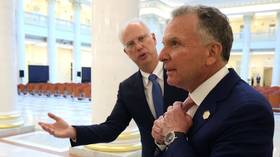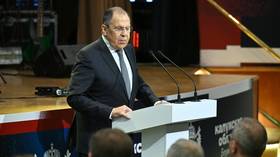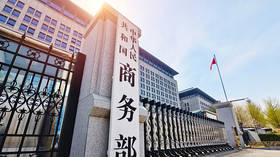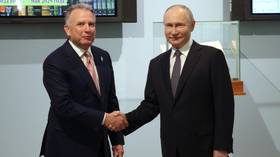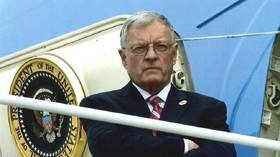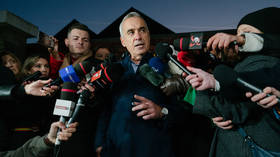Obama rallies bipartisan support for New START
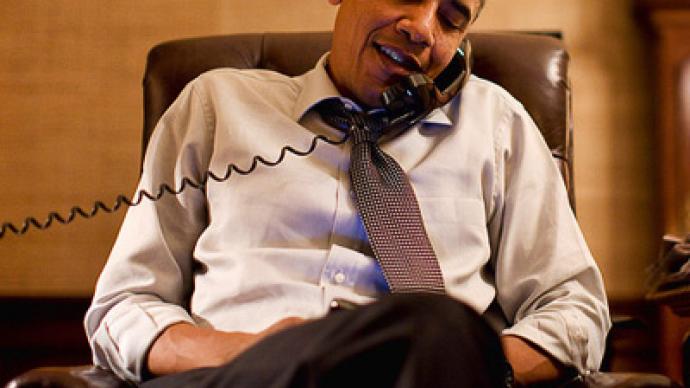
US President Barack Obama met with a group of bipartisan leaders in an effort to push a nuclear arms deal with Russia through the US Congress by year’s end.
The New Start Treaty replaces an older version of the bilateral nuclear arms reduction agreement between the US and Russia. It was initially signed by both Presidents Medvedev and Obama on April 8, 2010. It has yet to be ratified by national legislative bodies.Many have called the treaty Obama’s main foreign policy success. Even with bipartisan support, there are a number of challenges to the ratification. Republicans who once openly favored the treaty now oppose it, and newly elected conservative members continue to rally against it.Obama’s meeting met with various former secretaries of state, national security advisors and experts from both major political parties is a sign of how important the treaty is, and signifies there is hope it will pass before the end of the year.“I think the group around the table will confirm — that this New START treaty is completely in line with a tradition of bipartisan cooperation on this issue. This is not a Democratic concept; this is not a Republican concept. This is a concept of American national security that has been promoted by Ronald Reagan, George H.W. Bush, Bill Clinton, George W. Bush, and now my administration,” said Obama.Joseph Cirincione, a nuclear weapons policy expert and the president of the Ploughshares Fund said many people were surprised when Republicans, such as Senator Jon Kyle, reversed their position on ratifying the treaty swiftly.Kyle was previously in favor of ratifying the agreement, on conditions that Congress would fund the modernization if the remaining US nuclear arsenal. Now, he wants to put off the ratification until at least next year.“He [Kyle] seems to have alienated not just the administration, not just the members of the Joint Chiefs of Staff, the military in the United States really want this treaty, but members of his own party,” said Cirincione.Senior US Senator Richard Lugar, the ranking Republican member of the Senate Committee on Foreign Relations, blasted Kyle. He said Kyle’s change in stance is a mistake, calling treaty and positive US-Russian relations vital to US national security.“It looks like the administration wants this treaty ratified by the end of the year and there’re willing to fight for it,” said Cirincione.This is evidenced by high level talks between the Obama administration and Republican leadership. The treaty is necessary to secure US national security, argued Cirincione. The entity of the US national security establishment is solidly in favor of the agreement.“You have the military backing this; you have almost every senior former Secretary of Defense and Secretary of State and national security advisor backing it,” he added.However, there are those on the right who continue to oppose the treaty.“You have a minority within the Republican Party that are trying to score political points. They think that they can show that Obama is weak or humiliate him in some way by using this treaty as part of their partisan battle,” Cirincione explained. “I think that this is going to back fire a bit time on them.”There are still thousands of nuclear weapons in existence, yet much of the public has forgotten or is unaware of the magnitude. But when informed, the America public favors a reduction in nuclear arms, according to recent polls.Cirincione said there is unease in the US about nuclear weapons and with incidents of mistakes being made; the answer is to reduce the number weapons to their lowest possible levels and many in America support this goal.Brent Budowsky, a columnist with The Hill in Washington, DC said he believes the treaty has a 95 percent probability of ratification, but only a 30 to 40 percent chance of being ratified by the end of this year. However, high level Democrats and Republicans are involved in ongoing meetings to work together to find a compromise in order to ratify the New START by year’s end. “There is some politics and on the Republicans side there is a pressure to attack the President and to delay,” said Budowsky.There are a number of Republicans who oppose the treaty, and a few who see its merit. They understand a need for a positive change in US-Russian relations and the need for nuclear arms reeducation. “Military leaders in the US are telling Republicans as well as Democrats that this treaty serves the interests of the United States and the Russians, and that’s why it ought to be ratified,” Budowsky explained. “Many people in Russia are saying the same thing over there.” However, Republicans fundamentally do not believe in cooperating with democrats, argued Budowsky.“Short of President Obama becoming a Republican,” said Budowsky, conservative leaders will not cooperate with the President’s goals or agenda. “We have reached a point in Washington of non-stop partisan politics.”He argued that American voters want politicians on both sides to cooperate, however that is rarely the reality, and is becoming increasingly rare in US politics as recent statements have shown. “As Senator McConnell, the Republican leader in the Senate said, hours after the election was over his main priority is defeating President Obama in 2012in the presidential campaign,” Budowsky said.




